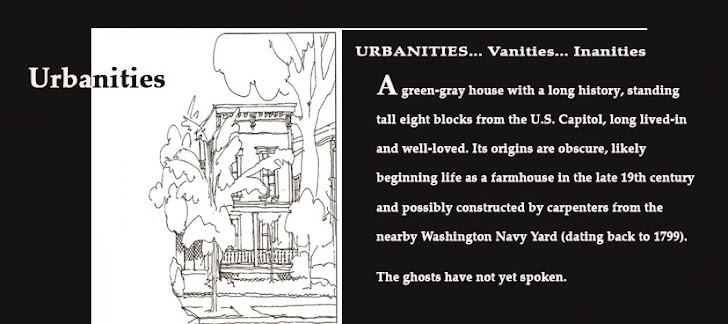What is a cosmopolite? A cosmopolitan person? Someone who looks outward perhaps (i.e. the cosmos...) in every sense of the word?
A word to play with, especially for those of us who tend to associate the adjective with an urban mentality. A city person is bound to look out and around just by virtue of being surrounded by other human beings on a regular basis. As in shoulder to shoulder in the public arena.
Anyone curious about how far to carry such matters should look to a new book by philosopher/professor Martha Nussbaum (University of Chicago) titled "The Cosmopolitan Tradition: A Noble But Flawed Ideal" who plays with the question "Is There Such a Thing as the Ethics of Cosmopolitanism?" (Harvard University Press). Count on some historic references and inferences. An excerpt can be found in today's BookMarks web, as noted in Lit Hub Daily today....
-----------------
The day a report was issued by a somewhat obscure agency (the Economist Intelligence Unit) naming Washington DC as 'one of the safest large cities of the world, ' the local paper (Washington Post) wrote of a 'rash of violence' in and around the District. Of course, such things are relative, but maybe the 110 people slain to date this year don't exactly tally as a crime wave. The city was the only U.S. city in the top 10 cited, and only one of two in North America along with Toronto.
The Economist's index publishes biannually, ranking 60 cities across six continents. Tokyo, Singapore and Amsterdam were rated higher on this somewhat obscene scale.
Hong Kong - no surprise these days - dropped from 9th to 20th. The District had risen from 23rd two years ago.
It all depends on how the data is compiled. Violent crime in the District 'has been steadily declining' while homicides have gone up 13 percent since last year. What helped bring DC up in the ratings was said to be the city's concentration on "intense disaster preparedness.'
Relative, you have to say. One person being killed and six wounded in a 24-hour period doesn't amount to a hill of beans. It's just a 'rash.'
A word to play with, especially for those of us who tend to associate the adjective with an urban mentality. A city person is bound to look out and around just by virtue of being surrounded by other human beings on a regular basis. As in shoulder to shoulder in the public arena.
Anyone curious about how far to carry such matters should look to a new book by philosopher/professor Martha Nussbaum (University of Chicago) titled "The Cosmopolitan Tradition: A Noble But Flawed Ideal" who plays with the question "Is There Such a Thing as the Ethics of Cosmopolitanism?" (Harvard University Press). Count on some historic references and inferences. An excerpt can be found in today's BookMarks web, as noted in Lit Hub Daily today....
-----------------
The day a report was issued by a somewhat obscure agency (the Economist Intelligence Unit) naming Washington DC as 'one of the safest large cities of the world, ' the local paper (Washington Post) wrote of a 'rash of violence' in and around the District. Of course, such things are relative, but maybe the 110 people slain to date this year don't exactly tally as a crime wave. The city was the only U.S. city in the top 10 cited, and only one of two in North America along with Toronto.
The Economist's index publishes biannually, ranking 60 cities across six continents. Tokyo, Singapore and Amsterdam were rated higher on this somewhat obscene scale.
Hong Kong - no surprise these days - dropped from 9th to 20th. The District had risen from 23rd two years ago.
It all depends on how the data is compiled. Violent crime in the District 'has been steadily declining' while homicides have gone up 13 percent since last year. What helped bring DC up in the ratings was said to be the city's concentration on "intense disaster preparedness.'
Relative, you have to say. One person being killed and six wounded in a 24-hour period doesn't amount to a hill of beans. It's just a 'rash.'
